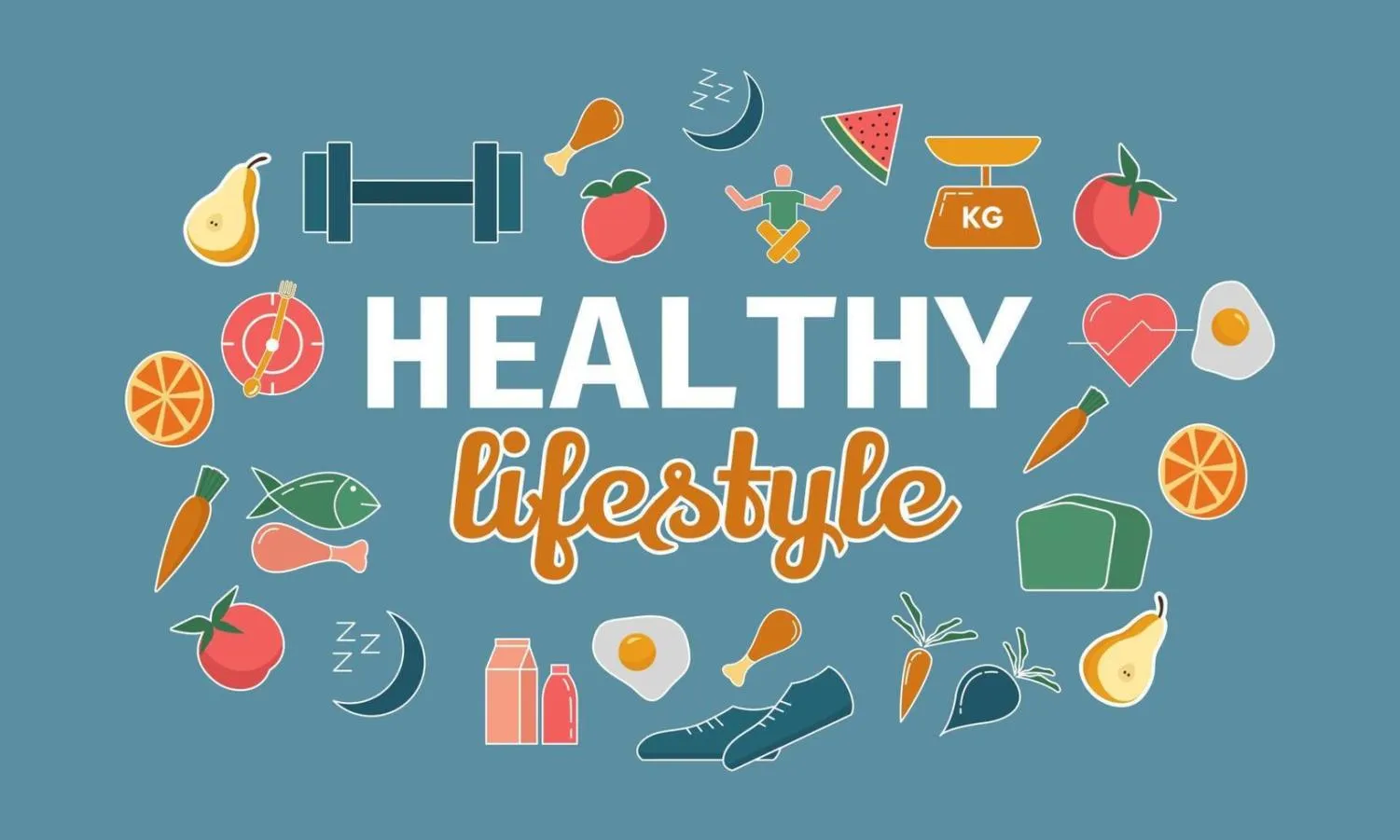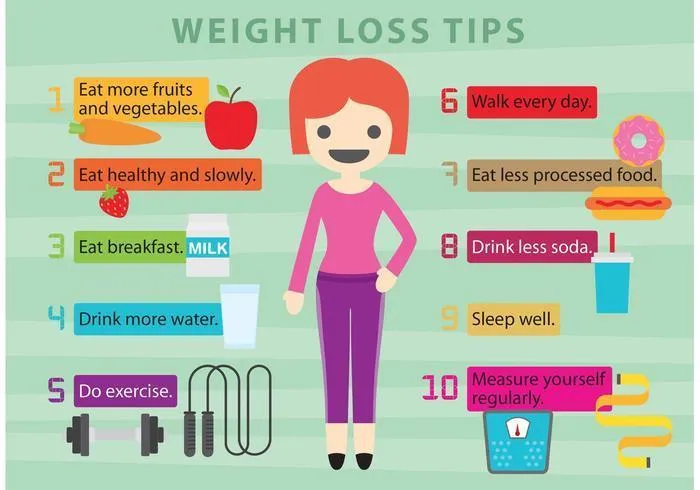Adopting a healthy lifestyle is essential for everyone, but it is especially important during the teenage years. This period is a time of growth, development, and learning, and the habits you establish now can have a lasting impact on your physical and mental well-being. Whether you’re juggling school, extracurricular activities, or social life, it can sometimes be hard to make health a priority. However, with the right tips and mindset, you can make healthy choices a part of your daily routine.
This article will provide practical and simple tips that teens can follow to maintain a healthy lifestyle, focusing on physical activity, nutrition, mental health, and sleep.
1. Stay Active: Incorporate Exercise into Your Routine
Physical activity is crucial for maintaining a healthy lifestyle. Regular exercise can improve your strength, flexibility, and endurance, and it also helps in boosting your mood and energy levels.
Tips for Staying Active:
- Find Activities You Enjoy: Exercise doesn’t always have to be intense or at the gym. You can engage in activities like dancing, biking, playing sports, or even hiking. The key is to find something that you enjoy so that staying active feels fun rather than like a chore.
- Set Realistic Goals: Aim for at least 30 minutes of moderate-intensity physical activity most days of the week. Whether it’s a walk, jog, or a few rounds of your favorite sport, consistency is important.
- Get Creative with Movement: If you’re short on time, try incorporating movement into your daily routine. Take the stairs instead of the elevator, walk or bike to school, or do a few stretches during study breaks.
2. Eat a Balanced Diet: Fuel Your Body with Healthy Foods
Nutrition plays a vital role in your overall health and well-being. The food you consume provides the energy and nutrients your body needs to grow, learn, and stay active.
Tips for Eating Healthy:
- Include Fruits and Vegetables: Aim to fill half of your plate with fruits and vegetables at every meal. These foods are packed with essential vitamins, minerals, and fiber that help keep you healthy.
- Choose Whole Grains: Instead of refined grains (like white bread and pasta), opt for whole grains (like brown rice, whole wheat bread, and oats). Whole grains provide more nutrients and help keep you feeling fuller for longer.
- Limit Processed Foods: Foods that are high in sugar, salt, and unhealthy fats can have negative effects on your health. Try to limit your intake of sugary snacks, soda, and fast food.
- Stay Hydrated: Water is essential for staying healthy. Aim to drink at least 8 glasses of water a day, and try to reduce sugary drinks like soda and energy drinks.
Example of a Healthy Plate:
- Breakfast: Whole grain toast with avocado and a boiled egg.
- Lunch: Grilled chicken with quinoa, mixed vegetables, and a side of fruit.
- Snack: Greek yogurt with berries and a sprinkle of nuts.
- Dinner: Salmon with brown rice and steamed broccoli.
3. Prioritize Mental Health: Take Care of Your Mind
Mental health is just as important as physical health. It’s normal to feel stressed, anxious, or overwhelmed from time to time, especially during your teenage years when you’re navigating school, relationships, and personal growth.
Tips for Supporting Your Mental Health:
- Practice Stress-Relief Techniques: Try deep breathing, meditation, or yoga to reduce stress. These techniques help calm the mind and improve focus.
- Talk to Someone You Trust: Whether it’s a parent, friend, teacher, or counselor, talking about your feelings can help you process emotions and gain perspective on challenging situations.
- Stay Connected with Friends: Building strong, supportive friendships is crucial for mental well-being. Make time to hang out with friends, even if it’s just a quick text or video call.
- Set Realistic Expectations: It’s easy to put pressure on yourself to achieve perfection, but it’s important to remember that it’s okay to make mistakes. Striving for balance and setting achievable goals will help reduce stress and anxiety.
4. Get Enough Sleep: Rest is Essential for Growth
Sleep is essential for everyone, but it is especially important for teens. During sleep, your body repairs itself, your brain processes information, and your energy levels are restored. Lack of sleep can affect your mood, memory, and physical health.
Tips for Better Sleep:
- Create a Sleep Schedule: Try to go to bed and wake up at the same time every day, even on weekends. Aim for at least 8-10 hours of sleep each night to ensure you feel rested and energized.
- Limit Screen Time: The blue light emitted by phones, tablets, and computers can interfere with your body’s ability to fall asleep. Try to avoid screens at least an hour before bedtime.
- Make Your Bedroom a Sleep-Friendly Environment: Keep your bedroom cool, dark, and quiet. Consider using blackout curtains, earplugs, or a white noise machine if needed.
- Relax Before Bed: Engage in calming activities before bed, such as reading, taking a warm bath, or practicing mindfulness to help signal to your body that it’s time to wind down.
5. Avoid Harmful Habits: Say No to Smoking and Excessive Drinking
During the teenage years, it’s common to face peer pressure, but it’s important to stay true to your values and avoid harmful habits that can negatively impact your health.
Tips for Avoiding Harmful Habits:
- Stay Away from Smoking: Smoking is harmful to your lungs and increases the risk of many diseases. If you are ever in a situation where smoking is offered, kindly refuse and stand firm in your decision.
- Limit Alcohol Consumption: Drinking alcohol at a young age can interfere with your brain development and lead to risky behavior. It’s important to be mindful of the effects alcohol can have on your health and relationships.
- Say No to Drugs: Experimenting with drugs can have serious consequences on both your mental and physical health. If you ever feel pressured or unsure, talk to a trusted adult for guidance and support.
6. Practice Good Hygiene: Keep Your Body Clean and Healthy
Good hygiene is an important part of maintaining a healthy lifestyle. It helps prevent infections, boosts your confidence, and promotes overall well-being.
Tips for Practicing Good Hygiene:
- Wash Your Hands: Wash your hands regularly, especially before eating, after using the bathroom, and after coughing or sneezing.
- Shower Regularly: Taking a shower daily helps remove sweat and bacteria from your body, keeping your skin healthy.
- Brush and Floss Your Teeth: Brush your teeth at least twice a day and floss daily to prevent cavities and gum disease. Regular visits to the dentist are also important.
- Take Care of Your Skin: Use a gentle face cleanser, moisturize regularly, and protect your skin from the sun by applying sunscreen.
7. Set Goals and Stay Motivated
Setting goals can help you stay focused and motivated on your health journey. Whether you want to improve your fitness, eat better, or prioritize self-care, having specific goals will keep you on track.
Tips for Setting Goals:
- Be Specific: Instead of vague goals like “get healthier,” make your goals measurable and specific. For example, “exercise three times a week” or “eat a serving of vegetables at every meal.”
- Start Small: Begin with small, achievable goals and gradually increase the difficulty as you progress. This will help build confidence and create lasting habits.
- Track Your Progress: Use a journal, app, or planner to track your goals and celebrate your successes, no matter how small.
Conclusion
Living a healthy lifestyle as a teen doesn’t have to be complicated. By focusing on physical activity, balanced nutrition, mental health, quality sleep, and hygiene, you can build a strong foundation for long-term health and happiness. Remember, it’s okay to take small steps and ask for support when you need it. Healthy habits are not built overnight, but with consistency and patience, you’ll be on your way to living a healthier, more fulfilling life.
Would you like an image to accompany this article, such as a teen enjoying a healthy meal or exercising at home?




